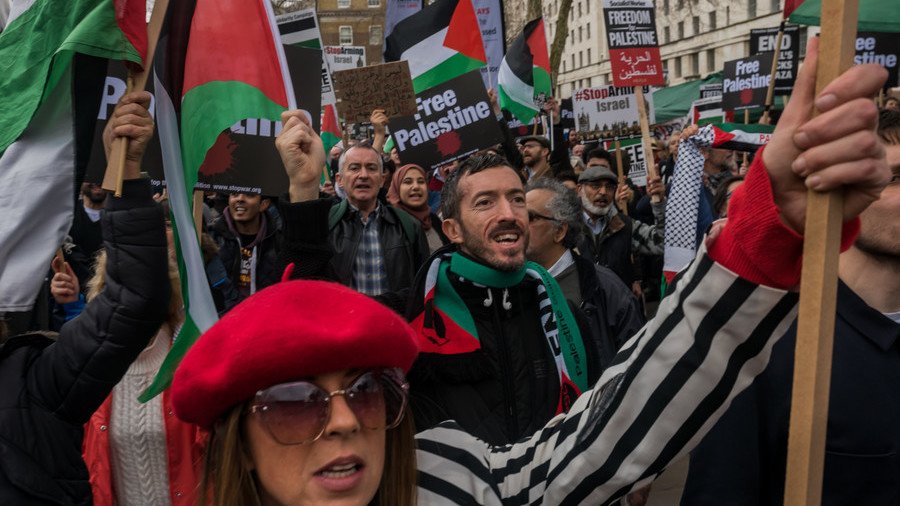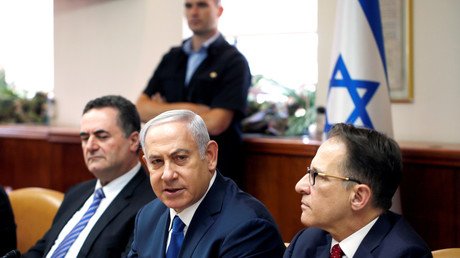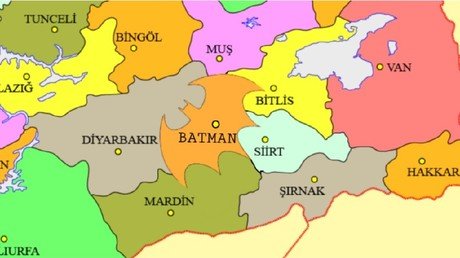UK Labour cruising towards split over Israel-Palestine

Britain’s Labour Party prepares to split; the Israel-Palestine issue breaks up the party after 100 years to the relief of Prime Minister Theresa May.
At least that’s the proximate cause of the rapidly approaching schism in the opposition Labour Party.
Attempts to effectively outlaw existential criticism of Benjamin Netanyahu’s Israel have foundered on the rocks of the obduracy of the veteran Labour leader Jeremy Corbyn whose commitment to the Palestinian cause has been a leitmotif of his 40 years in left-wing politics.
Support for the Palestinians and opposition to Israel has grown massively in recent decades in Britain and throughout the Western world. The recent decision after a passionate debate in the Irish Senate to ban the products of illegal Israeli settlements in the Occupied Territories was a high point for the BDS (Boycott Divestment and Sanctions) movement. And this decision preceded the new controversial National Law passed in the Israeli Knesset, which UN bodies and others have said makes Israel officially an apartheid state, giving a spur to the BDS cause.
Widespread ostracism of apartheid South Africa was an important factor in the downfall of the system in South Africa.
But Israel is far from taking these defeats lying down. The Israeli embassy in London is a vital center for counter-offensives, Ambassador Mark Regev a key operative in Netanyahu’s machine. That Israel chose to send Regev to London was an early sign of the importance of the UK battleground.
When I joined the Palestinian struggle in 1975, you could’ve fitted all British supporters of the PLO into a small hall, with room for elephants at the back. Now you couldn’t fit us into Hyde Park. We are millions, literally.
I know when the tide turned because I was there, literally.
I left West Beirut in 1982, just ahead of the advancing Israeli invasion of Lebanon. Within hours they were at the gates. Their capture of President Arafat’s fiefdom in the West of the city led to the departure of Arafat and his forces under an agreement brokered by the US plenipotentiary Philip Habib. Its terms included the protection of the families the fighters were leaving behind. They were promptly fallen upon by the Israeli backed Lebanese Phalange militia and massacred.
The UN and the Israeli Kahan Commission later held that former Israeli prime minister Ariel Sharon – present at the scene of the massacre in the Sabra-Shatila refugee camp – shared responsibility for the murder of thousands of unarmed civilians.
General Sharon was required to resign from the government of Menachem Begin but would later return as prime minister himself.
The massacre marked the beginning of a long, slow but inexorable turn away from Israel by the British labor and trade union movement.
I wrote the resolutions that passed that year in both the Labour Party Conference and the Trade Union Congress against fierce Israeli lobbying (I could show you my scars). The resolutions established policy for the first time in favor of a Palestinian state with East Jerusalem as its capital and for the recognition of the PLO as the “sole legitimate representatives” of the Palestinian people. In 1982, this was a heady brew, I assure you.
Year by year, as Israeli governments became evermore right wing and as the plight of the Palestinians grew ever more grim, the giant tanker turned a little more.
Although his lifelong fidelity to this cause was not the reason for Jeremy Corbyn’s election as Labour leader – the Iraq War and austerity was much more so – it certainly marked a high water mark in the growing movement against Netanyahu’s Israel.
And Mr Regev and the embassy were not slow to recognise the danger to their position in a Britain whose perfidy played such a key role for over a century in the Israel-Palestine question.
The full might of the Israel lobby has been mobilized to first stop Corbyn winning the leadership, to depose him once he had won it, and above all to stop him becoming prime minister.
They have had some success, particularly within the ranks of Corbyn’s MPs – most of them products of the long reign of Tony Blair. Revolt after revolt from within against Corbyn has been mounted on everything from Brexit to arms sales to Saudi Arabia. But the most potent is the now-rampant virulent campaign against “anti-Semitism” in Corbyn’s Labour. What this boils down to is, of course, not anti-Semitism at all but opposition to Israel. The idea that the vegetarian left-wing bicycling peacenik and anti-racism fanatic Jeremy Corbyn hates Jews is as absurd as it is offensive.
Having failed to dislodge him and failed to make him kneel, his enemies are planning to breakaway and form a new centrist bloc against Brexit, in favor of NATO and Trident nuclear weapons, and of course in defense of Israel.
The last time this happened nearly 40 years ago it failed to prosper. But by dividing the anti-Conservative vote, it kept Mrs Thatcher in power for a whole decade. And thus the only person laughing in British politics today is the beleaguered Mrs May.
Subscribe to RT newsletter to get stories the mainstream media won’t tell you.
The statements, views and opinions expressed in this column are solely those of the author and do not necessarily represent those of RT.

















